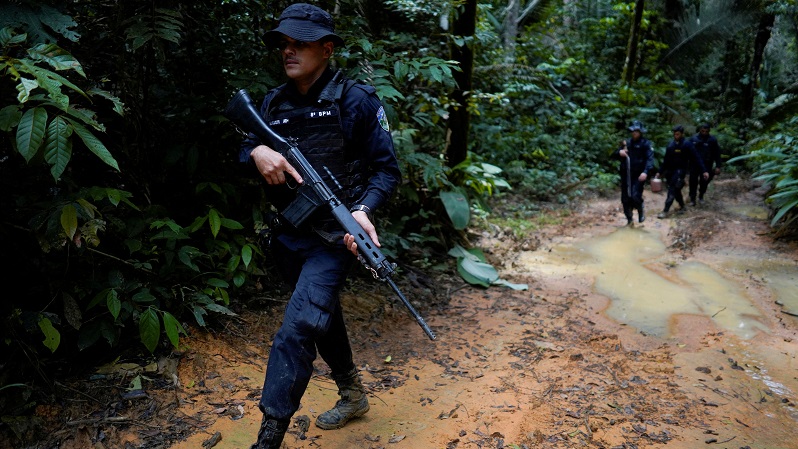When governments gather for the Amazon summit next week, they will talk about how to tackle drug traffickers who destroy forests
When the presidents of Amazon nations including Brazil, Peru and Colombia meet at a regional summit next week, they will train their sights on a new breed of criminal just as comfortable chopping down the rainforest as shipping drugs overseas.
“Narco-deforestation,” as it was referred to in a United Nations report last month, represents a new target for law enforcement operating in the Amazon rainforest, where the lines between specialist criminal outfits are increasingly blurred.
The eight member countries of the Amazon Cooperation Treaty Organization (ACTO), who are due to meet in the northeastern Brazilian city of Belem for an Aug. 8-9 summit, are expected to reach an agreement to cooperate on combating such crimes, said Carlos Lazary, the organization’s executive director.
“We’re worried about the Amazon,” Brazilian President Luiz Inacio Lula da Silva, who proposed the summit on the campaign trail, said in a speech last month. “It’s there that organized crime, drug trafficking and everything illegal is fomented.”
Boosted by bumper Andean coca harvests and record-breaking cocaine demand in Europe, the Amazon has in recent years become a drug-trafficking thoroughfare. Illicit cargos easily pass through the vast, sparsely populated and thinly policed region on boats, planes or even submarines on their way to the Atlantic Ocean.
With booming profits, many of the drug gangs in the Amazon are now laundering the money through illegal land speculation, logging, mining and other means, the United Nations Office on Drugs and Crime warned in its annual World Drug Report.
Charles Nascimento, a Brazilian Federal Police officer and veteran of the Amazon drugs beat, said criminal groups often use existing drug routes to get illegally harvested gold and wood to market.
“Many people who work in wildcat mines also work as traffickers and vice versa,” he said. “It’s like they feed off of each other.”
This increasing criminal cross-pollination has prompted police to expand a recurring Amazon anti-narcotics operation between Peru and Brazil, scheduled for later this year, to also target environmental crimes, Nascimento said.
Murders prompt pushback
The 2022 murders of indigenous expert Bruno Pereira and British journalist Dom Phillips, allegedly at the hands of a poaching ring with organized crime connections, prompted Lula to increase policing in remote areas, Nascimento said.
Lula – who has staked his international reputation on ending the rampant deforestation that surged under his far-right predecessor Jair Bolsonaro – has reeled off a flurry of measures to combat environmental crime since taking office on Jan. 1.
The most important has been the creation of a specialized Federal Police directorate focused on the Amazon and environmental crime.
His administration has also proposed a center for interna
Read More

